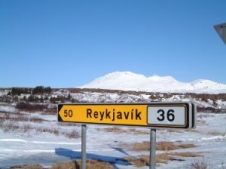Interesting facts about the Icelandic Language

Posted on December 23, 2014 by Chris
What do you know about Iceland? You might know that Iceland is actually green and Greenland is actually ice, as the saying goes. But do you know much about the Icelandic language?
Here, we have gathered a list of interesting facts about the Icelandic language. Hopefully, these fun facts will teach you quite a bit about this language that about 300,000 people, living on a beautiful island in Northern Europe, speak on a daily basis.
- The Nordic language is very similar to ancient Norwegian (or Old Norse), mostly because it is thought the Icelandic language evolved from this language.
- Documents containing written texts in the Icelandic language date to around 1100.
- Before it was written down at all, the Icelandic language thrived due to an important oral culture including things like songs, stories, poetry, etc.
- In addition to the Icelandic language, lots of people in Iceland may also speak English, Dutch, and/or Norwegian.
- Of all other Germanic languages still in use, Icelandic is considered the most like the ancient languages it evolved from. This is why many native speakers can still read ancient texts written in this language with little difficulty.
- The Vikings originally brought with them the languages that would evolve into modern Icelandic.
- The English word geyser is derived from the Icelandic word geysir.
- About 97% of the people who still live in Iceland are native speakers of the Icelandic language.
- The Icelandic language is also closely related to the languages German and Dutch. Faroese is probably the modern language most like Icelandic, though.
- Other countries in the political body known as the Nordic Council (Denmark, Finland, Iceland, Norway, and Sweden) do not communicate in official documents or preceding in Icelandic. Only Dutch or Swedish is used.
- Even with Danish rule over Iceland for many years, the Dutch language never truly caught on in Iceland.
- Although Icelandic does not normally pick up words from other languages (like languages such as English often does), speakers do often just make up new words in their own native language. This has been especially true since the 1800s.
- Icelandic speakers have their own form of sign language!
- People living in Iceland do not use last names like we do. Instead, the use last names that refer to the person as the son or daughter of whoever their parents are.
- Many see Icelandic as a dying language outside of the country of Iceland.




